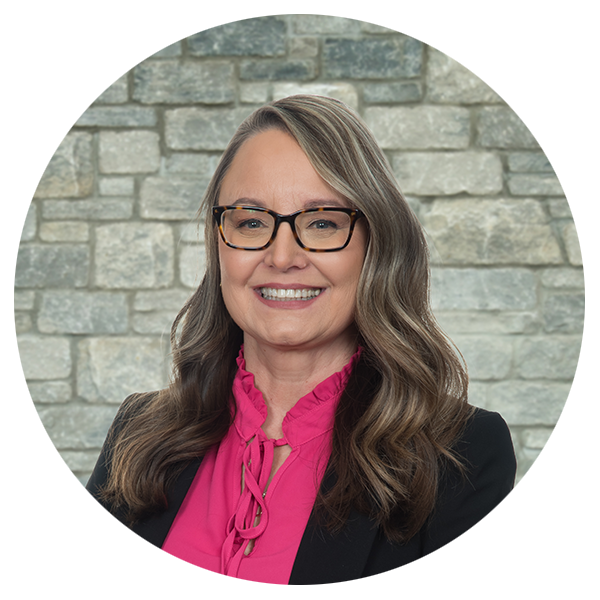Cancer Care
After A Diagnosis
It’s a phrase no one is ever prepared to hear, "you have cancer.”
Those words can send shock and fright through your body, whether it’s the first time you’re hearing them or this is your second or even third battle with the disease. Just the thought of a cancer diagnosis can be overwhelming, and that’s where we want to help.
Battling cancer is not easy, but you can do it. Our hope is that this guide helps you take control of your diagnosis and proves to be an effective resource to both you and your loved ones during this difficult time.
Finding out you have cancer can be daunting and sparks many questions, not the least of which is, "what do I do now?” In this section we have some tips to help you, as well as your friends and family, begin this journey and the battle against this disease.
First Steps
- The first step is to take a deep breath. Cancer can be overwhelming and frightening, but try not to panic. Many cancers are treatable, so stay positive and learn all you can about your diagnosis.
- Don’t rush into treatment. Take time to weigh your options and discuss them with your doctors as well as your friends and family. We’ll talk about some pros and cons of possible treatments a little later.
- Call your insurance company and ask for a case manager. This will give you a single point of contact who is familiar with your situation for any questions or concerns you might have throughout this process.
Before Surgery
- Pick a surgeon who specializes in your tumor type.
- Ask your doctor if the anesthesiologists they work with are covered under your insurance.
- Consider a second opinion. This doesn’t mean you don’t trust or believe your doctor, it’s just a way to reaffirm what you’re already being told.
After Surgery
- Keep your doctor and pharmacy’s numbers handy.
- Ask for any signs or symptoms you should report and don’t hesitate to call.
- Ask your surgeon about possible after-effects from the surgery.
Chemotherapy and Radiation
CHEMOTHERAPY – Treatment in which a patient is given a combination of medications designed to kill cancer cells.
| Pros |
Cons
|
RADIATION – Treatment that uses high-energy radiation to shrink tumors and kill cancer cells.
| Pros |
Cons
|
Both chemotherapy and radiation treatments have shown to be effective against different types of cancers at different stages. Be sure to discuss all of your options with your doctor concerning your specific circumstances to make sure the treatment is right for you.
No Caregiver?
Many times surgery is needed as a part of the cancer treatment. If you require surgery and live alone or don’t have a caregiver we recommend you:
- Ask someone to stay with you for as many days as your surgeon suggests. Some surgeries can require up to a couple weeks of recovery time.
- Keep your pain medicine as well as a glass of water by your bed.
- Get back to your routine as soon as possible but don’t rush yourself. Recovery takes time and rushing yourself can lead to more complications.
Planning for the Future
Having a well thought out plan for your future is a good idea, even for healthy people. It’s not always the most comfortable topic, but smart planning makes sure that YOU get to decide on the important decisions and it isn’t put in the hands of loved ones to guess what you would have wanted.
- Create a living will. This document gives instructions for providers and allows you to state your wishes for care in case you become unable to communicate decisions. If you prefer someone else make decisions for you (e.g.: spouse, kids, etc.) you can designate a durable health care power of attorney. That person would then be legally authorized to make decisions for you, regarding your health, if you are unable to communicate your wishes.
- Meet with an attorney to create or update your last will.
- Designate a durable financial power of attorney to make financial decisions in case you are unable to communicate your wishes.
- Discuss your diagnosis with your employer and review your health and disability coverages.
- Check health coverage for things like palliative or hospice care.
Importance of Planning
Hearing the words "you have cancer” is scary enough, now add on top of that a laundry list of doctors’ appointments, meetings, reminders and classes and it is overwhelming. One of the greatest tools you can use to help keep life organized and avoid chaos is a planner.
Inside your planner you can record the date and time of your diagnosis, along with any appointments, meetings, consultations and classes. Your diagnosis will also bring along with it a host of different medications that need to be taken on different days and at different times. The planner is a great place to keep track of all of those schedules as well.
During your treatment journey there will be good days and bad days, and it’s important to keep track of those too. Each day you should record which symptoms you are feeling, when the symptoms began and the intensity on a 1-10 scale. This will allow you to easily update your doctors and keep them informed on how you’re doing.
Here you will find a one year, printable calendar. This calendar includes space to record your symptoms each day, along with when during the day the symptoms began.
Address Book
Your planner is not just a great place to keep track of when you need to be somewhere, but also to know where you need to be. At the bottom of your calendar you will find space to keep track of contact information for your insurance, doctors, nurses, social workers, referrals, support groups and more. Otherwise, you may end up with dozens of little notes and business cards scattered everywhere from your car to your office and everywhere in between. These pages will make sure you never lose or misplace all of that important information.
There is so much information to keep up with and it can seem overwhelming, especially when a doctor is asking you to provide specific information. That’s why it is important to write everything. If at any time you choose to see a new doctor or there is any issue that arises with your insurance you will likely be asked to provide this information. Having all the information written saves you the time and energy of trying to remember specifics and can be very helpful in future diagnosis or treatment options.
Download and Print
Personal Cancer History (Fill out and bring to your first appointment)
Cancer clinical trials are medical research studies where people participate as volunteers to test new methods of prevention, screening, diagnosis or treatment of a disease. Typically clinical trials are something you want to discuss with your doctor at the time of your diagnosis. There are numerous different types of cancer trials, many of which are specific to certain types of cancer, or even certain stages of cancer.
Resources
There are numerous clinical trials available for nearly every type of cancer and every stage of cancer. Most of these clinical trials are either funded privately or through the federal government. Below you’ll find three links that you can use to help find clinical trials that apply to you and your diagnosis.
Questions to Ask
Beginning a clinical trial can be scary and leave some patients with a feeling of uncertainty. We’ve provided a list of possible questions you can ask your doctor or provider to help give you more information as you consider clinical trials.
- What is the purpose of the trial?
- How do the researchers believe that the treatment being studied may be better than the one being used now?
- How long will I be in the trial?
- What kinds of tests and treatments are involved?
- How will the doctor know if the treatment is working?
- How long do I have to make up my mind before the trial begins?
- What are the possible side effects or risks of the new treatment?
- Will I have to pay for any of the treatments/tests?
- How far will I have to travel to participate in this trial?
- Will I have to stay in the hospital during the clinical trial? If so, for how long?
It is important that you stay well informed when it comes to your disease. Here are a list of some examples of the types of questions you may want to ask your cancer care team. (Click on the topic below to reveal the questions.)
General Information
- What are the risk factors with this disease?
- Is this type of cancer genetic? Could other members of my family be at a risk?
- What lifestyle changes do you recommend I make to stay as health as possible during treatment?
Symptoms
- What are some common symptoms with this type of cancer?
- How can I avoid or manage the symptoms with my daily activity?
- Are there any activities that make the symptoms worse?
Diagnosis
- What tests are necessary with this disease and how often?
- How long will it take to get the results? Will I get them in person at my next appointment or over the phone?
- How much about my diagnosis should I share with my family and friends and when?
Staging
- What is the stage of my cancer?
- Has the cancer spread? If so, to where?
Treatment
- What are my treatment options?
- How much experience do you have treating this type of cancer?
- Will I need to be hospitalized for treatments?
- How will this treatment affect my daily life?
Printable Questions to Ask List
These are just a few of the many questions that may come up along the way. Cancer can be overwhelming and will attempt to overload not just your body but also your mind. The doctors, nurses and other providers at Lexington Clinic are committed to helping you and your family in every way possible through this process.

